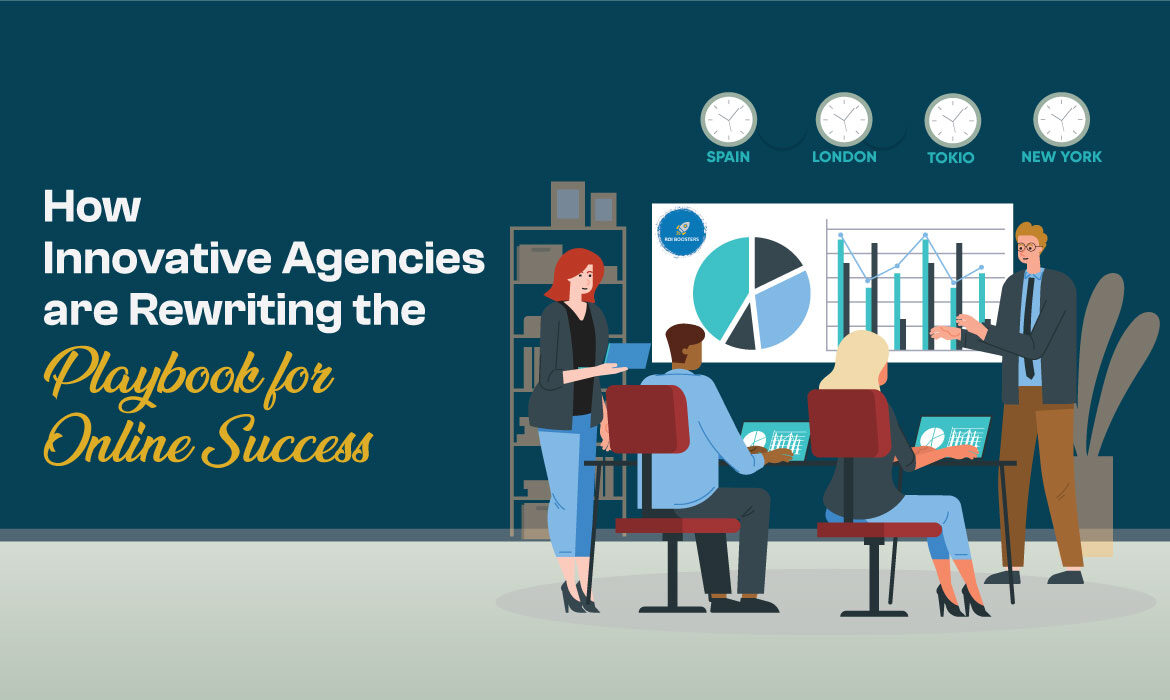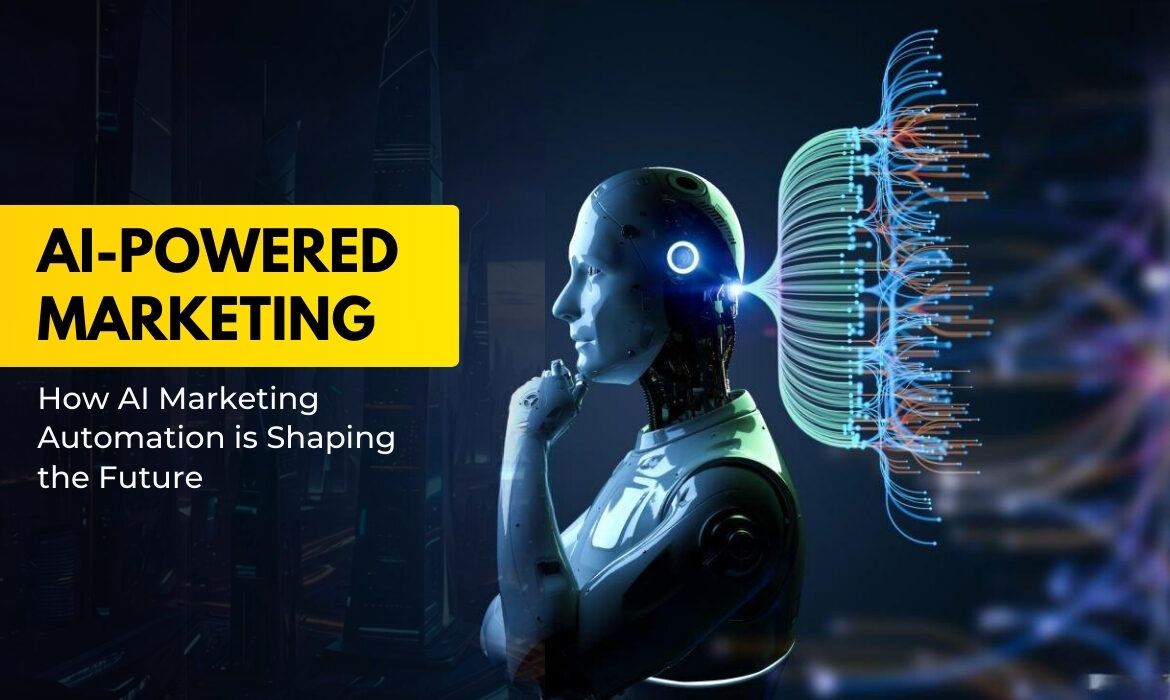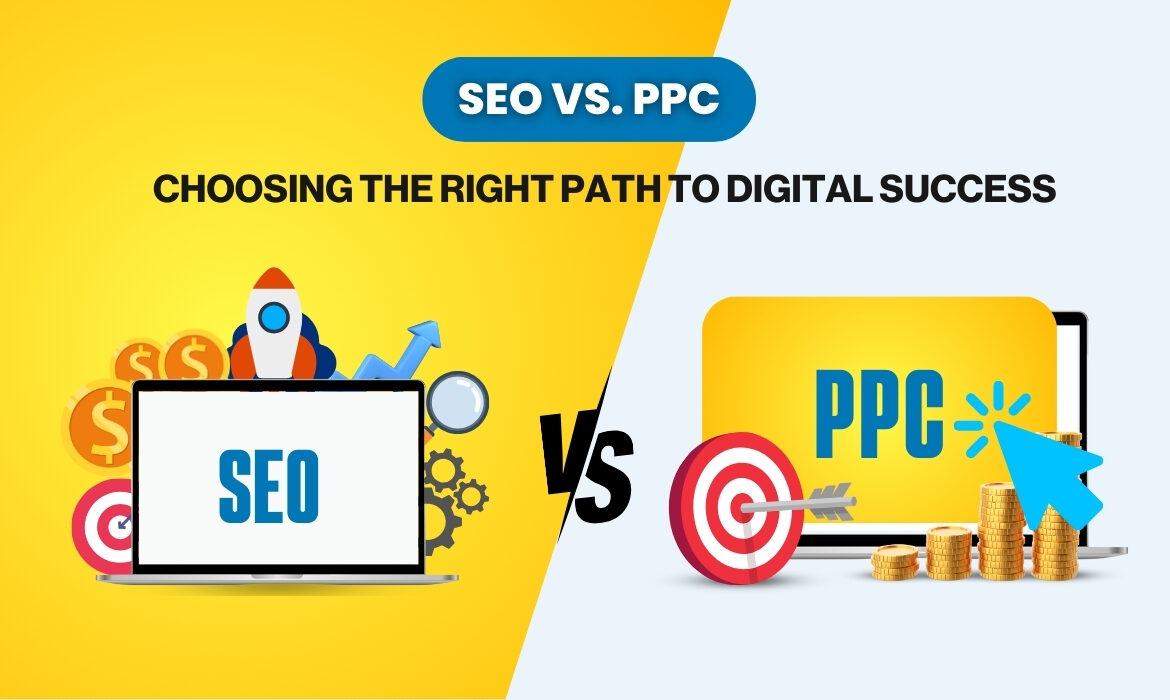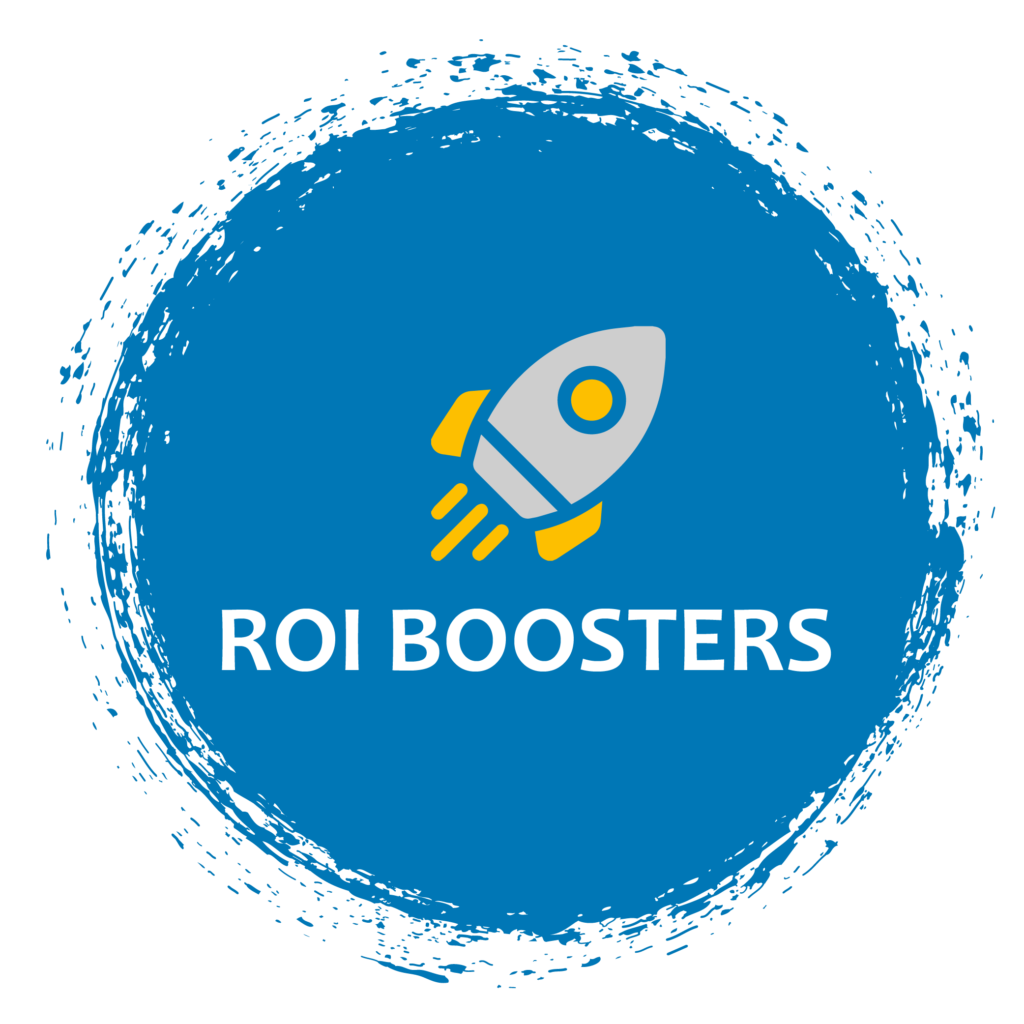Digital Marketing Agency Disruptors: How Innovative Agencies are Rewriting the Playbook for Online Success
The fast-evolving nature of today’s digital marketing landscape dictates that relevance only remains relevant with constant innovation and a data-driven approach. At the forefront of this are pioneering digital marketing agencies that have not only kept pace but have set new standards. From advanced strategies to deep knowledge of Meta, Google, and LinkedIn, they had been working wonders through innovative campaigns that changed the way online success would look. Let’s take a look at how these digitally innovative agencies in the USA drive this transformation.
How Digital Marketing Agencies Are Shaping the Future of Online Success
Today, modern digital marketing agencies are embracing more than just the basics; they are transforming online advertising through platform-specific, data-focused campaigns. Gone are the days of broad-stroke strategies; nowadays, agencies are refining each campaign to strike a chord on select channels for maximum impact and value to clients across the nation. Here’s how ROI Boosters-the best digital marketing agency in the USA-is at the helm of this change to drive online business success, be it big or small.
Data-driven strategies for precision and performance: what segregates leading-edge digital marketing agencies is their data-driven approach that stands as the differentiator. Agencies like ROI Boosters deploy an interesting mix of advanced analytics, comprehensive tracking tools, and detailed audits to build highly targeted campaigns that can adjust to changing trends. Data-driven marketing is much more than metrics themselves; it’s all about bringing raw data together into actionable insights constituting every fragment of one’s campaign strategies-from ad account audits to optimized bidding, performance tracking, and audience refining. With robust audience segmentation by companies like ROI Boosters, campaigns reach the right people displaying messages that poke their interests and behaviors. This focused approach massively juices up return on ad spend through impactful content delivered to genuinely engaged audiences, boosting conversions, and overall campaign effectiveness.
Digital Marketing with Meta Ads: Target the Right Audiences on Both Facebook and Instagram
The vast Meta platform, comprised of both Facebook and Instagram, is arguably one of the most holistic digital advertising platforms available today. ROI Boosters leverages powerful user data and segmentation provided by Meta to build campaigns that get to just those audiences being targeted. They will be able to tap into advanced segmentation, demographic and interest-based, behavioral access of Meta’s user data to make such ads resonate with users. With the help of Meta Ads, ROI Boosters will be able to create targeted custom audiences-including lookalike audiences-so that a brand can outreach itself beyond their current customers. This segmentation makes sure each campaign is given the optimum opportunity, taking into important tools like Meta Pixel, which can track key metrics: page views, click-throughs, and conversions that provide rich data to further optimization of the campaigns. By gaining insight from audience behaviors and serving users at the right time, in this way, ROI Boosters Meta Ads have driven high levels of engagement, driving key business outcomes for their clients.
Capturing Intention and Ensuring Outcomes for Google Ads among Digital Marketing Agencies
A properly run Google Ads campaign is at the core of businesses that have a need to either establish or further an online presence. With capabilities in both Search and Display networks, Google allows digital marketing agencies to not only capture the search intent of users but also increase visibility with display ads. This omnichannel approach has proven most effective regarding brand recognition and in generating high-quality leads. The ROI Boosters strategy in Google Ads is written upon data-centric techniques that are aimed at unlocking maximum ad spend. By using tools such as Google Analytics 4 and andere keyword research, ROI Boosters makes out what search terms the customers are actively applying. They couple this with accurate keyword selection and a mix of optimized bidding and precise tracking, thus enabling them to create campaigns that not only pop up on searches during competitive search results but also yield higher conversion rates. With ROI Boosters, scaling businesses ensure the Google Display Network is optimized to reach users on millions of websites and apps by placing ads at strategic points in the customer journey for maximum visibility. This all-inclusive approach on Google Ads empowers ROI Boosters to create highly performing ads well beyond the click-through rate, focusing on meaningful conversions that actually contribute to business growth.
LinkedIn Ads: Connecting decision-makers in B2B Marketing
The best avenue to connect to industry professionals and decision-makers is through LinkedIn Ads. At ROI Boosters, they create the best campaign that connects key stakeholders with job titles, industries, and company size to target those leads that are most likely to convert. ROI Boosters’ LinkedIn campaigns are designed to reach those professionals who show a high intent for industry solutions and grab their attention with its creatives through Sponsored Content, InMail, and Text Ads. This will give ROI Boosters a great chance to build trust among prospects with highly relevant ad copy and visual elements while generating engagement through LinkedIn Ads. Through constant monitoring of LinkedIn’s powerhouse analytics, they are able to hone targeting even more, increase lead generation, and form connections that often bloom into ongoing business relationships.
ROI Boosters Approach: Setting New Standards in Digital Marketing
1 .Custom Campaign Strategy for Digital Marketing Success
Each campaign that ROI Boosters builds up always starts with deep insight into the client’s goals, problems, and competitive landscape. Their team tailors advertising plans so that each campaign meets the peculiar goals of the brand and leverages strengths from Meta, Google, and LinkedIn. This personalized approach lets ROI Boosters create campaigns that ensure results and fully maximize the unique capabilities of each platform.
Advanced Audience Analysis and Development of Personas: A major secret behind the success of ROI Boosters is the depth of commitment that the firm devotes to understanding the target audience of a client. With deep audience analysis and the creation of ideal customer personas, ROI Boosters informs itself about consumer behaviours, interests, and needs. These then become the bedrock of crafting relevant messages that stick, magnetically drawing audiences toward them and creating connectedness that drives action.
2 .In-depth Ad Account Audits and Optimizations
Before the launch of any campaigns, detailed audits of the performance of existing ad accounts are undertaken by ROI Boosters, where inefficiencies are sought out and avenues for improvement identified. This auditing process strengthens the core of their campaign for maximum structure and efficiency in ad budgets. With regular auditing, ROI Boosters continually improves targeting and enhances ad performance so that each campaign results in maximum return.
3.Tracking and Performance Measurement
State-of-the-art performance measurement is central to the approach at ROI Boosters. Equipped with advanced tools like Google Tag Manager, Meta Pixel, and GA4, they track key metrics in real-time and give actionable insights to their clients. All of this data-driven framework helps to continuously optimize and enables ROI Boosters to make very quick adjustments that keep these campaigns aligned with the audience’s needs and the business objectives.
4.Proactive Campaign Management and Seasonal Adjustments
The nature of digital advertising is to continuously adapt to seasonal trends, changing consumers’ behaviors, and new developments within industries. Its team at ROI Boosters does this seamlessly, and these adjustments only serve to keep campaigns relevant and responsive. With foresight and flexibility in managing each and every campaign at any time of the year, ROI Boosters can enable a brand to keep its audience in great engagement-even when markets fluctuate.
Benefits of Hiring a Data-Driven Digital Marketing Agency in the USA
The collaboration with agencies like ROI Boosters offers a number of strategic benefits to businesses seeking digital marketing services in the USA. Increased Return on Ad Spend: A data-driven agency, at each dollar, ensures that this dollar is utilised via advanced tracking and optimisation techniques to achieve high ROAS.
- Granular Audience Targeting: Deep knowledge of audience behaviors and preferences elevates the ‘data-driven agencies’ to shortlist ads that truly resonate throughout, reduce waste in spend, and drive conversion.
- Agility and Responsiveness: Agencies like ROI Boosters use real-time data as a competitive differentiator in this fast-moving digital landscape where trends pop in and out. They will make quicker adjustments to keep your clients well ahead of the competition.
- Transparent, Detailed Reporting: Through regular reports that expound on key metrics and points needing improvement, clients tangibly see the performance of their campaigns. This allows for trust and the ability to make decisions based on gathered information.
The Future of Digital Marketing: Insights from Disruptive Agencies
As a digital disruptor agency, ROI Boosters is part of the future when considering that digital marketing has come closer to being ruled by data, driven by measurable outcomes, and honed by platform expertise. A specialist digital marketing agency in the USA offers both the tools and expertise required for sustained online growth, be it businesses looking to master such complexities of digital advertising. Equipping a brand with this partnership in the increasingly competitive digital environment empowers it to forge lasting connections, engage effectively, and produce results.
Ready to Boost Your ROI? Discover Our Innovative Marketing Solutions!
Frequently Asked Questions
Ques 1: What is a “disruptor” digital marketing agency?
Disruptive digital marketing agencies adopt innovative data-driven approaches that guarantee measurable results. They create new standards for the industry in targeting precision, performance tracking, and adaptability.
Ques2 : Why do disruptive digital marketing agencies need data-driven strategies?
Data-driven strategy helps an agency to carve closer fits between campaigns and audience behaviors and needs, hence driving better engagement and higher conversion rates. Driven by data, agencies can make continued refinements and optimizations that lift ROI.
Ques 3 : How does ROI Boosters optimize their campaigns on Meta Ads?
The ROI Boosters uses the segmentation of audiences under Meta, its features on retargeting, and tracking with Meta Pixel to create targeted, high-performing campaigns for user engagement via interest, demographics, and behaviors.
Ques 4 : What advantages does running LinkedIn Ads have for a B2B business?
The LinkedIn Ads target professionals above job titles, industries, and more. With LinkedIn Ads, ROI Boosters nurtures relationships with high-quality leads and decision-makers, setting the business up for long-term opportunities.
Ques 5: What role do ad account audits play in digital marketing success?
Ad account audits uncover areas of inefficiency to further hone targeting so that budgets are utilized properly. ROI Boosters’ audits set up a solid foundation for performance in campaigns and drive a greater ROI
Ques 6 : How does ROI Boosters measure campaign success?
ROI Boosters employs tools like GA4, Google Tag Manager, and Meta Pixel to track ROAS, conversion rates, and engagement metrics. This real-time tracking enables continuous optimization for each campaign.
Leveraging AI and Automation to Boost Your Marketing Efforts
In today’s rapidly evolving digital landscape, businesses are increasingly turning to artificial intelligence (AI) and automation to enhance their marketing efforts. These technologies not only streamline processes but also offer innovative solutions to reach and engage target audiences more effectively. In this blog, we’ll explore how AI in digital marketing and AI marketing automation can revolutionize your marketing strategy, driving growth and efficiency.
Understanding AI in Digital Marketing
What is AI in Digital Marketing?
Artificial intelligence in digital marketing refers to the use of AI technologies to automate processes, analyze large data sets, and make data-driven decisions. AI in digital marketing encompasses a wide range of applications, including machine learning, natural language processing, and predictive analytics. These tools help marketers understand consumer behavior, optimize campaigns, and deliver personalized content, all of which contribute to more effective marketing strategies.
The Rise of AI in Digital Marketing
Over the past few years, AI has transitioned from a futuristic concept to a practical tool widely adopted by businesses of all sizes. The ability of AI to process vast amounts of data quickly and accurately has made it an invaluable asset in digital marketing. From chatbots to recommendation engines, AI is being integrated into various marketing platforms to enhance customer experiences and improve marketing outcomes.
Key Benefits of AI in Digital Marketing
- Enhanced Customer Insights: AI analyzes consumer behavior and preferences, enabling marketers to tailor campaigns to specific audience segments.
- Improved Personalization: AI-driven personalization delivers relevant content to the right people at the right time, increasing engagement and conversion rates.
- Efficient Resource Allocation: AI automates repetitive tasks, freeing up time for marketers to focus on strategic initiatives.
- Real-time Analytics: AI provides real-time data analysis, allowing for quick adjustments to marketing strategies based on performance metrics.
The Role of AI Marketing Automation
What is AI Marketing Automation?
AI marketing automation involves the use of AI-powered tools to automate various marketing tasks, such as email marketing, social media management, and lead generation. These tools can optimize the timing, content, and delivery of marketing messages, ensuring that they resonate with the target audience. AI marketing automation goes beyond traditional automation by incorporating machine learning algorithms that continuously improve campaign performance over time.
How AI Marketing Automation Enhances Efficiency
Automated Campaign Management: AI-driven tools can automatically create, launch, and manage marketing campaigns, reducing the need for manual intervention.
Predictive Analytics: AI marketing automation tools analyze past campaign data to predict future trends, enabling marketers to make informed decisions.
Dynamic Content Creation: AI can generate personalized content at scale, tailoring messages to individual user preferences and behaviors.
Lead Scoring and Nurturing: AI automates the lead scoring process, identifying high-potential leads and nurturing them through the sales funnel with targeted content.
AI Marketing Automation Tools
Several AI marketing automation tools are available that can significantly boost your marketing efforts:
HubSpot: Offers AI-powered features for email marketing, lead scoring, and customer segmentation.
Marketo: Uses AI to automate campaign management and optimize lead nurturing strategies.
Drift: An AI-driven chatbot platform that automates customer interactions and lead generation.
Salesforce Marketing Cloud: Incorporates AI to personalize customer experiences across various channels.
Implementing AI in Your Marketing Strategy
Assessing Your Needs
Before diving into AI and automation, it’s crucial to assess your current marketing strategy and identify areas where these technologies can provide the most value. Consider the following questions:
What are the most time-consuming tasks in your marketing process?
Where do you see the biggest gaps in customer engagement or conversion rates?
How can AI-driven insights improve your decision-making process?
Choosing the Right Tools
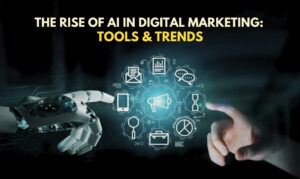
With a plethora of AI and automation tools available, selecting the right ones for your business can be overwhelming. Start by identifying your specific needs and evaluating tools based on their features, ease of use, and integration capabilities with your existing systems. Consider starting with a few key tools and gradually expanding as you become more comfortable with AI technology.
Training Your Team
Implementing AI in digital marketing requires more than just technology; it also necessitates training your team to effectively use these tools. Invest in training programs that help your team understand how to leverage AI marketing automation for maximum impact. Encourage a culture of continuous learning, as AI technology is constantly evolving.
Measuring Success
As with any marketing initiative, it’s essential to measure the success of your AI-driven efforts. Set clear objectives and key performance indicators (KPIs) to track the impact of AI in digital marketing. Regularly review and analyze performance data to identify areas for improvement and optimize your strategy accordingly.
Case Studies: AI in Digital Marketing Success Stories
Case Study 1: Netflix’s Personalized Recommendations
Netflix is a prime example of how AI in digital marketing can enhance user experiences. The platform uses AI algorithms to analyze viewer behavior and preferences, delivering personalized content recommendations. This AI-driven approach has been instrumental in keeping users engaged, reducing churn, and driving subscriber growth.
Case Study 2: Coca-Cola’s Social Media Sentiment Analysis
Coca-Cola leverages AI to monitor social media sentiment and gain insights into consumer perceptions of its brand. By analyzing millions of social media posts, the company can quickly identify trends, address customer concerns, and tailor marketing campaigns to align with consumer sentiment.
Case Study 3: Sephora’s AI-Powered Virtual Assistant
Sephora has integrated AI into its marketing strategy with an AI-powered virtual assistant that helps customers find products based on their preferences and needs. This tool has improved customer satisfaction and increased online sales by providing personalized product recommendations.
Overcoming Challenges in AI Marketing Automation
Data Privacy Concerns
One of the main challenges of AI in digital marketing is data privacy. As AI tools often rely on large amounts of consumer data, businesses must ensure that they comply with data protection regulations, such as GDPR. Transparency in how data is collected, stored, and used is crucial to maintaining consumer trust.
Integration with Existing Systems
Another challenge is integrating AI marketing automation tools with existing systems. Ensuring compatibility and seamless data flow between different platforms is essential for maximizing the benefits of AI. Businesses should work closely with technology providers to address integration challenges.
Cost and ROI
While AI marketing automation tools can be expensive, it’s important to consider the long-term return on investment (ROI). The efficiency gains, improved customer experiences, and higher conversion rates achieved through AI can outweigh the initial costs. Businesses should conduct a cost-benefit analysis to determine the potential ROI of implementing AI in their marketing strategies.
The Future of AI in Digital Marketing
As AI technology continues to advance, its role in digital marketing will only grow. Future trends may include:
Hyper-Personalization: AI will enable even more precise personalization, delivering content tailored to individual preferences in real time.
Voice Search Optimization: As voice search becomes more prevalent, AI will help optimize content for voice queries, improving search engine rankings and user experiences.
Augmented Reality (AR) in Marketing: AI will play a key role in developing AR experiences that engage customers in innovative ways, such as virtual try-ons for fashion and beauty products.
AI-Driven Content Creation: AI tools will become increasingly sophisticated in generating high-quality content, from blog posts to video scripts, reducing the burden on human creators.
Conclusion
Leveraging AI and automation in your marketing efforts is no longer just an option—it’s a necessity in today’s competitive landscape. By embracing AI in digital marketing and AI marketing automation, businesses can enhance customer experiences, streamline processes, and ultimately drive growth. As AI technology continues to evolve, those who adapt and innovate will be best positioned to succeed in the digital age.
Ready to Revolutionize Your Marketing Strategy with AI?
Discover how AI and automation can drive your business growth. Get Started Today!
SEO vs. PPC: Which Strategy is best for Your Business?
In today’s fast-paced digital world, getting traffic to your website is key to staying competitive. Two of the most popular methods to attract visitors and turn them into customers are SEO (Search Engine Optimization) and PPC (Pay-Per-Click). While both strategies have their perks, they also come with their own set of challenges. If you’re trying to figure out whether to work with a PPC agency in Chicago or invest in SEO services across the USA, you’re in the right place. Let’s break it down so you can make the best decision for your business.
What is SEO?
SEO, or Search Engine Optimization, is all about making your website more visible in organic search results. By optimizing your site for search engines like Google, you can rank higher for relevant keywords, driving traffic to your pages without having to pay for each click. SEO involves various strategies like keyword research, creating valuable content, improving technical aspects of your site, and building links.
Benefits of SEO:
Cost-Effectiveness: Once you’ve made the initial investment in SEO, the traffic keeps coming in without additional costs. Unlike PPC, where you pay for each click, SEO generates ongoing organic traffic, giving you more bang for your buck over time.
Credibility & Trust: People tend to trust organic search results more than paid ads. With a strong SEO strategy, your brand can be seen as more credible and authoritative in your industry.
Long-Term Results: SEO takes time, but the payoff can be lasting. As you continue optimizing your content, your site can keep growing and delivering traffic, offering a solid return on investment (ROI) over the long run.
Broader Visibility: SEO helps you rank for more than just a few specific keywords. By targeting a wide range of relevant search terms, you can attract visitors at various stages of their buying journey.
Drawbacks of SEO:
Time-Consuming: SEO is a long game. It can take months to see results, and maintaining those results requires ongoing work. If you’re in need of immediate traffic, this can be a dealbreaker.
Algorithm Changes: Google and other search engines constantly tweak their algorithms. Even a well-optimized site can experience ups and downs in traffic due to these changes, which can be frustrating.
High Competition: In competitive industries, ranking high on search results can be a challenge. It often requires a significant investment in quality content, backlinks, and technical optimization.
What is PPC?
PPC, or Pay-Per-Click, is an advertising model where you pay each time someone clicks on your ad. With platforms like Google Ads, you can bid on keywords related to your products or services, ensuring your ads show up in search results or across relevant websites. PPC offers a fast, targeted way to get your business in front of potential customers.
Benefits of PPC:
Immediate Results: One of PPC’s biggest advantages is speed. Unlike SEO, which can take time, PPC campaigns can start driving traffic to your site almost instantly. It’s perfect for businesses looking for quick leads or sales.
Highly Targeted: PPC allows you to fine-tune your audience targeting. You can control who sees your ads based on location, demographics, interests, and even the time of day. A Chicago-based PPC agency, for instance, can help you zero in on a local audience or a specific niche.
Budget Control: PPC gives you complete control over your budget. You can set limits on your daily or campaign spend, making it easy to adjust your investment as needed.
Measurable ROI: PPC provides detailed performance data. You can track every click, impression, and conversion, allowing you to make data-driven decisions and optimize your strategy in real time.
Drawbacks of PPC:
Cost: PPC can get expensive, especially in competitive industries where popular keywords come with a hefty price tag. If you’re not careful, costs can quickly pile up, lowering your overall ROI.
Temporary Traffic: PPC delivers quick traffic, but once you stop paying for ads, the traffic disappears. It’s not a long-term solution if you’re looking to build sustainable growth.
Ad Fatigue: Over time, people can get tired of seeing your ads, especially if they see them frequently. This can lead to diminishing returns, requiring you to continuously refresh your ads to keep them effective.
SEO vs. PPC: Which is Right for Your Business?
Deciding between SEO and PPC depends on your business goals, budget, industry, and the resources you have at your disposal. Let’s take a closer look:
Business Goals:
If you need quick results—for instance, during a product launch or a time-sensitive promotion—PPC is probably your best bet.
If you’re focused on long-term growth and building a steady stream of traffic, SEO is the way to go.
Budget:
If you’re working with a limited budget, SEO might be more cost-effective in the long run. While it can be expensive upfront, it doesn’t require ongoing payments like PPC.
On the other hand, if you have a flexible budget and need fast results, PPC can be a good choice. You’ll have more control over how much you spend and can adjust based on performance.
Industry & Competition:
In highly competitive industries, a mix of both SEO and PPC can help maximize your reach. A PPC agency in Chicago, for example, can manage your paid campaigns while you work on building your organic presence through SEO.
If your business operates in a niche market, SEO might be enough to generate quality leads without the need for paid ads.
Expertise & Resources:
If you have an in-house SEO team, you may want to lean more toward SEO. It takes skilled content creators, technical experts, and link builders to get the best results.
If you need specialized support, partnering with a PPC agency can help you navigate the complexities of paid advertising and ensure your campaigns are optimized for success.
Conclusion:
In today’s digital landscape, both SEO and PPC are essential tools for driving traffic and achieving business goals. While PPC offers immediate visibility and targeted advertising, SEO provides long-term benefits, trust, and sustainable growth.
Ultimately, the right strategy depends on your specific needs. Many businesses find success by using both SEO and PPC together, leveraging the strengths of each to reach their goals. If you’re unsure where to start, consulting with experts—whether it’s a PPC agency in Chicago or SEO specialists in the USA—can help you develop a plan that fits your business, budget, and industry.


